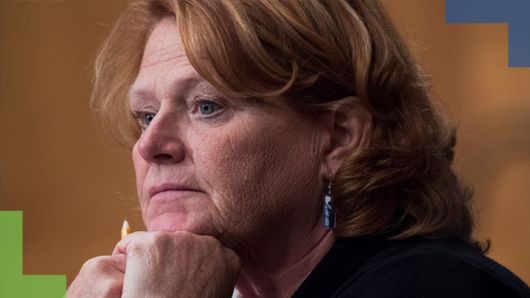
Economists who argue that there is no retirement income crisis are missing the point. The crisis is not today, it is 20 years in the future.
But the time to act is now, before it’s too late.
Every day, millions of Americans go to their jobs, work hard, and play by the rules to pay the bills and put food on the table each night. But they often struggle to then find any way to save for retirement.
Currently, almost half of all American families do not have any retirement savings. That’s a time bomb waiting to go off, putting families across this country in jeopardy for generations and placing our economy at risk.
The challenges are clear: More than one-third of all private sector workers do not have access to a workplace retirement plan. Projections show that 44 percent of Baby Boomers and Gen Xers risk running short of funds for retirement. And 40 percent of American adults would be unable to come up with $400 for an emergency expense account, without borrowing money or selling a possession.
We face a looming retirement crisis that will impact millions of elderly and soon-to-be elderly Americans, as well as our children and grandchildren who will have to bail out those generations.
By 2035, and for the first time in U.S. history, Americans over the age of 65 will outnumber our children. If we stay on trend, America’s old-age dependency ratio in 2020 will be 3.5 working-age adults for every person of retirement age. By 2060, that ratio will fall to about 2.5 to one.
The reality of the aging of America must be considered with current income trends. A recent study from the Federal Reserve Bank of St. Louis showed that between 1989 to 2013, there has been some wage growth among older families. Yet families in which the head of the household is 61 years old or younger actually saw wage declines over the past two decades by about 30 percent. That’s a stark reality for too many families struggling to pay the bills, who often aren’t able to save for retirement.
In two decades, Americans will be older and older Americans will be poorer. That reality begs the question: How we will afford to care for older Americans when most American families have no or very little retirement savings?
There are steps we can take to help address this looming retirement crisis.
First, individuals and families must make saving for retirement a priority. It can be difficult to think about your 401(k) or IRA when you’re living paycheck to paycheck, but putting a little bit away each month will make all the difference. The earlier you start saving, the better off you’ll be.
The long-term solution lies in the adage “time is money,” or at least the opportunity to make money. If you put in a little bit in savings each year starting at a young age, it will add up to a lot of money by the time you’re 65 years old – and much more than if you start saving for retirement when you’re 40 or 50 years old. A recent CNBC.com article showed the benefits of starting saving for retirement at 25 or 30 years old.
A $650 monthly deposit into a 5 percent compounding account will yield $ 1million after 40 years. A little over $10 dollars a day (the price of an average dine-in lunch) would yield half a million dollars. Run those same numbers over a 20-year period, and the results are $267,000 and $132,000, respectively.
The answer is obvious: start saving early, even if it’s a small amount, and get regular tax-free savings.
Second, Congress must act as well. This retirement crisis is not news for policy makers.
Last July, while I was still serving in the U.S. Senate, I worked with Senators Tom Cotton (R-AR), Cory Booker (D-NJ), and Todd Young (R-IN) on a bipartisan package of common sense bills that would help boost retirement security for individuals and families. It was strongly endorsed by the Bipartisan Policy Center. I hope these bills are reintroduced this Congress because they are needed.
Congress needs to invest in hard working families by helping make sure they can save for retirement now, so they will be set up for success in later years. But it also must be careful to avoid further complicating an already overly- complicated retirement savings system.
The dirty little secret is that government can provide all the incentives in the world for workers and families to save for retirement. But none of it will matter unless those workers and families make saving for retirement a priority as well.
























